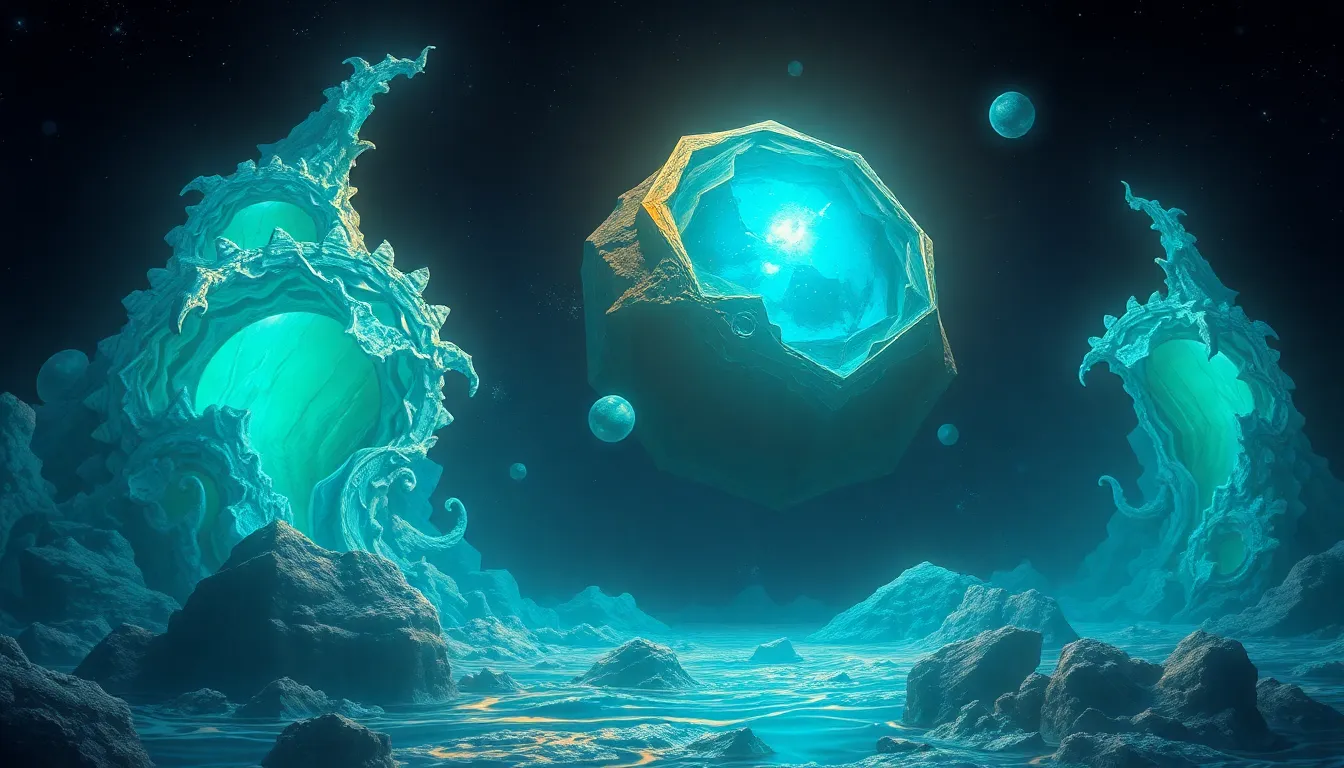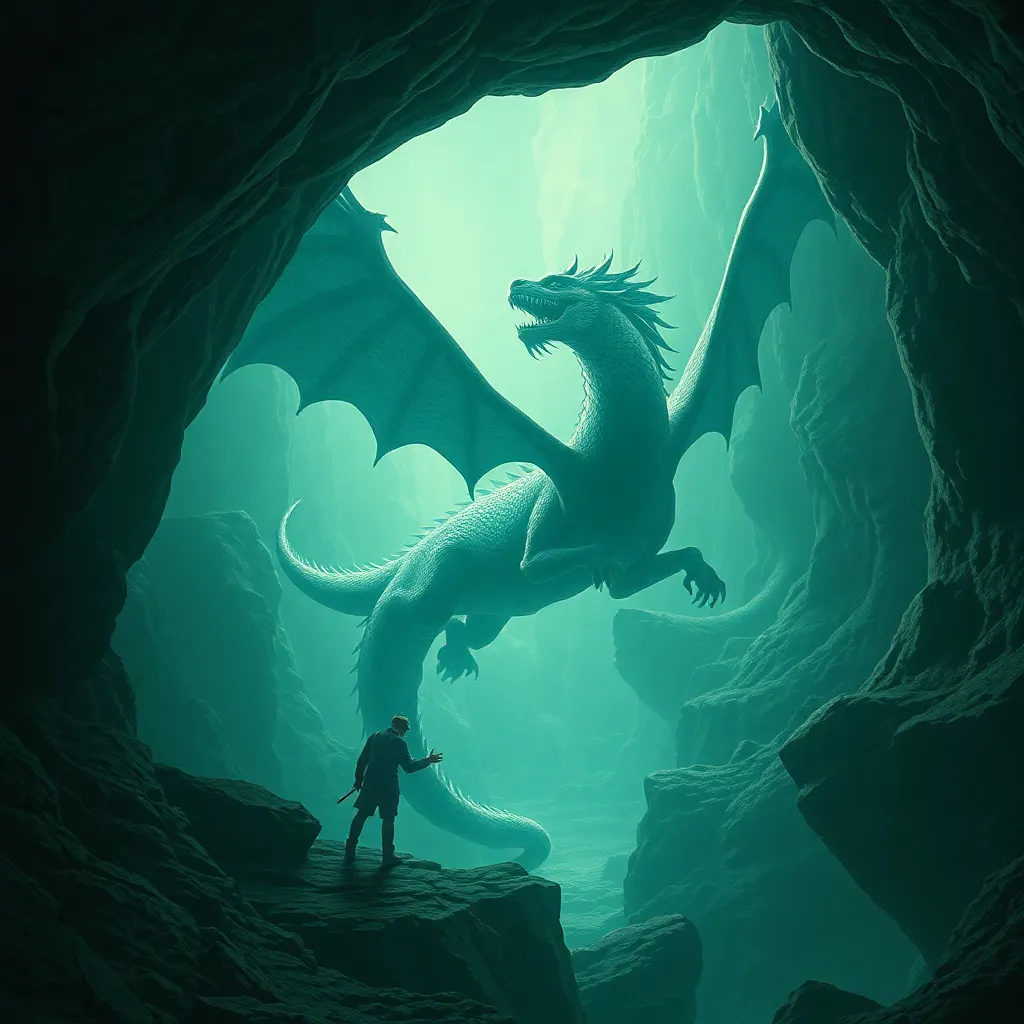The Gem of the Sea: Myths of Ocean Mysteries
Introduction to Ocean Mysteries
The vastness of the ocean has captivated human imagination for centuries. Covering over 70% of the Earth’s surface, the seas are a source of life, inspiration, and mystery. From the rhythmic lapping of waves to the unfathomable depths that harbor untold secrets, the ocean has become a significant player in our cultural narratives.
Myths and legends have emerged as essential tools for interpreting the enigmas of the sea. They provide a lens through which ancient civilizations sought to understand the unpredictable nature of the ocean, as well as its impact on human life and society.
The Origins of Ocean Myths
Ancient civilizations revered the ocean, viewing it as both a giver of life and a formidable force. From the Egyptians who worshipped water deities to the Polynesians who navigated vast distances across the Pacific, the sea was central to their existence.
Storytelling played a crucial role in these cultures, often serving to explain natural phenomena:
- Storms and tempests were attributed to angry sea gods.
- Unexplained disappearances of ships gave rise to tales of sea monsters.
- Navigation techniques were often steeped in myth, guiding sailors with the wisdom of their ancestors.
Mermaids: The Enigmatic Sea Dwellers
Mermaids have long enchanted societies across the globe. These mythical beings, typically depicted as having the upper body of a woman and the tail of a fish, appear in the folklore of many cultures, from the sirens of Greek mythology to the Mami Wata of West Africa.
The symbolism of mermaids often reflects duality:
- They embody beauty and allure, drawing sailors to their doom.
- They represent the unknown and the dangers lurking beneath the surface.
In maritime lore, mermaids serve as both protectors and harbingers of disaster, embodying the complex relationship humans share with the ocean.
Kraken and Sea Monsters: Creatures of the Deep
The legend of the Kraken, a gigantic sea creature said to dwell off the coasts of Norway and Greenland, has fascinated generations. Described as a fearsome beast capable of dragging entire ships into the abyss, the Kraken has its origins in sailors’ tales and exaggerated accounts of encounters with giant squids.
Other notable sea monsters have also emerged in various cultures:
- The Leviathan of Biblical lore, symbolizing chaos and power.
- The Japanese Umibōzu, a mysterious creature said to capsize ships.
- The Charybdis of Greek mythology, a whirlpool that devours sailors.
These creatures often symbolize the fear of the unknown and the perils of the ocean, reinforcing the narrative of the sea as a realm of mystery and danger.
Lost Cities Beneath the Waves
Myths of lost cities beneath the ocean’s surface have intrigued explorers and historians alike. The most famous of these is Atlantis, described by Plato as a powerful civilization that fell into ruin. Archaeological explorations have fueled speculation about its existence, leading to various theories about its location.
Beyond Atlantis, other submerged legends include:
- Ys, a mythical city in Brittany, France, said to have been swallowed by the sea.
- Dwarka, a submerged city in India, linked to the epic Mahabharata.
- Helike, a Greek city that vanished after an earthquake.
These tales reflect humanity’s enduring fascination with what lies beneath the waves and the quest to uncover lost histories.
The Sirens’ Song: Allure and Danger
In Greek mythology, sirens were enchanting creatures whose beautiful songs lured sailors to their doom. The sirens symbolize temptation and the perils of desire, serving as a cautionary tale about the dangers of succumbing to allure.
The siren’s call has had a profound psychological and cultural impact:
- It illustrates the conflict between reason and desire.
- It highlights the consequences of ignoring warnings in pursuit of pleasure.
Sailors, aware of the dangers, often devised strategies to resist the sirens’ song, reflecting the constant struggle between human desire and survival.
The Influence of Ocean Myths on Navigation and Exploration
Ocean myths have significantly influenced navigation and exploration practices throughout history. Sailors often relied on these tales to guide their journeys:
- Beliefs in sea monsters would lead to caution in certain waters.
- Stories of benevolent sea spirits encouraged sailors to offer sacrifices for safe passage.
The intersection of myth and science became evident as explorers ventured into the unknown, often using both mythological guidance and navigational tools to chart their courses.
Modern Interpretations of Oceanic Myths
Today, there is a resurgence of interest in ocean myths, reflected in contemporary culture through literature, film, and art. These stories continue to resonate, offering insights into humanity’s relationship with the sea.
Modern interpretations often explore themes of:
- The environmental impact on ocean ecosystems.
- The psychological connections individuals have with the ocean.
- Reimagining traditional myths in a contemporary context.
The Role of Environmental Changes in Myth Creation
Natural disasters and climate phenomena have historically influenced the creation of ocean myths. Events such as tsunamis, hurricanes, and rising sea levels often prompt communities to craft narratives that explain these occurrences.
Case studies include:
- The myth of the Great Flood, found in many cultures, often correlating with real flood events.
- Legends of disappearing islands, linked to rising sea levels due to climate change.
These narratives not only serve as explanations for environmental phenomena but also as warnings to future generations.
Conclusion: The Enduring Allure of Ocean Mysteries
The ocean remains a source of endless fascination, with its depths housing countless stories and mysteries. Ocean myths encapsulate humanity’s struggle to understand and navigate this vast expanse, reflecting our fears, desires, and hopes.
As we face the challenges of environmental change and explore the ocean’s depths, preserving these myths becomes crucial. They are not just tales of old; they are vital threads in the fabric of our cultural heritage, reminding us of the enduring allure of the sea and its mysteries.



